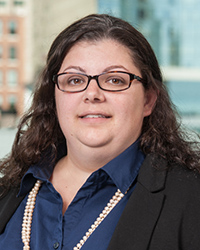Innovation drives leasing in the Financial District - by Liz Berthelette
Boston has seen unprecedented growth in the innovation economy this cycle, which is impacting commercial real estate patterns throughout the downtown markets.
Once the center of finance and professional services, Boston’s Financial District has become a hotspot for young, creative companies. Close to 100 TAMI (technology, advertising, media and information-based) companies – including DataRobot, PayPal, and Localytics – now boast a Financial District address.
The Seaport (aka the Innovation District), on the other hand, is filling up with more traditional office users like law firms and consulting companies. Goodwin Proctor, PwC and Boston Consulting Group are just a few of the big-name firms that are making the move across the Fort Point Channel. In fact, according to a BBJ article, more than 2 million s/f in professional services, law firms, and consultancies have relocated from traditional downtown submarkets to Boston’s hottest neighborhood.
Not only is tenant demand shifting between locations, but also within product types. The influx of these TAMI tenants into the Financial District has led to increasing demand for lower floor office space. With higher ceilings and larger floor plates, these spaces are more flexible and allow firms to customize their workspaces. More affordable rents are an added benefit, especially among tenants being priced out of the Seaport and Cambridge. As a result, office space below the 10th floor has been outperforming in the Financial District with vacancies ending the second quarter at just 8.2%. Conversely, vacancies above the 20th floor were 13.7% at the end of the quarter.
The Financial District has long been the center of activity for the Boston economy, and the movement of tech firms into the neighborhood signals the emergence of the tech industry as a pillar of Boston’s economic future.
Liz Berthelette is director of research at NAI Hunneman, Boston, Mass.
Newmark negotiates sale of 10 Liberty Sq. and 12 Post Office Sq.

Five ways to ruin a Section 1031 Like-Kind Exchange - by Bill Lopriore

How COVID-19 has impacted office leasing - by Noble Allen and John Sokul

Make PR pop by highlighting unique angles - by Stanley Hurwitz









.png)
